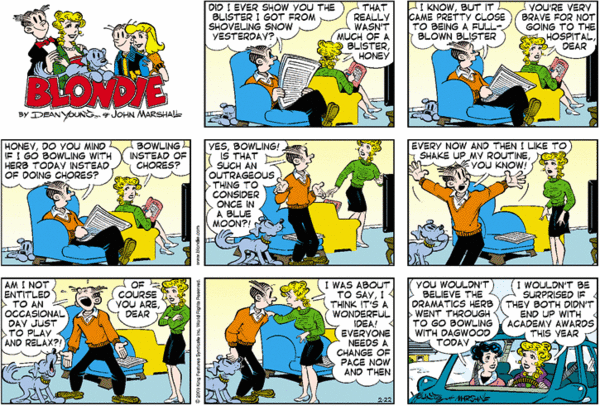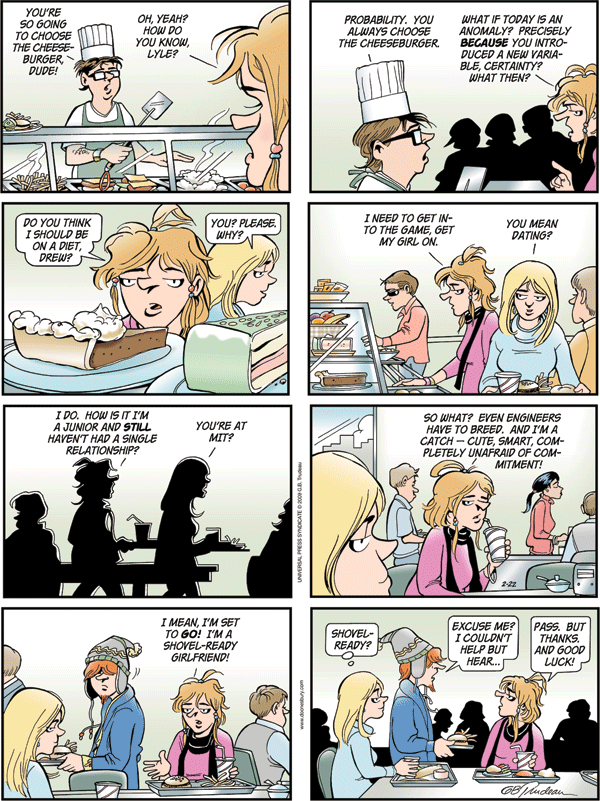Real BeijingeRs
For a taste of Pekingese colloquial and a slice of traditional life in Beijing, I offer this 4 minutes and 24 seconds rap video entitled "běi jīng tǔ zhù 北京土著 (Beijing Natives)":
Here follow a transcription and translation of the entire song. One thing that will be immediately evident is the fondness of Beijingers for adding final retroflex -r to the end of many words. There seems, however, to be some disagreement among individual speakers on when to -r, as it were, and when not to -r. Our transcription distinguishes three categories of -r: bold for when the singer adds an -r that is not in the original lyrics, italics for when he fails to -r but we think he should, and regular -r when the original lyrics have an -r. Sometimes the -r is subtle and sometimes it is very obvious; given the complexities of the phenomenon, we cannot guarantee that we've recorded all of them to the satisfaction of Pekingese aficionados.
Please also note that some of the tones and occasionally the vowel quality differ from what we would normally expect in Modern Standard Mandarin. The fact that it's a song also means that the contours of the melody sometimes are at odds with the tones.
Finally, the singer uses a few English expressions, so those appear both in the column with the Chinese lyrics and in the column with the translation. And there's at least one Pekingese morpheme (DER) in the lyrics for which there's no known character.
| 切一片西瓜四五两 qiē yí piànr xīgua sì-wǔ liǎng |
Slice me a piece of watermelon, about four or five liangi |
| 真正的薄皮脆沙瓤儿 zhēnzhèng de bó pí cuì shārángr |
Only the truly thin-skin watermelon comes with this crisp and grainy texture |
| 当四合院儿的茶房飘着茉莉花儿香 dāng sìhéyuànr de cháfáng piāozhe mòlìhuār xiāng |
When the scent of jasmine wafts in the tea room of the siheyuanii |
| 夏天的炎热全部被遗忘掉 xiàtiān de yánrè quánbù bèi yíwàng diào |
One forgets all the heat of the summer |
| 酌一杯佳酿漂远方 zhuó yì bēi jiāniàng piāo yuǎnfāng |
Pour a glass of fine wine as your thoughts wander afar |
| 胡同儿里酒香醉人肠 hútòngr lǐ jǐuxiāng zuì rén cháng |
The senses are drunk with the fragrance of the wine steeped within the hutong alleys |
| 当老城角儿的夕阳回荡拨浪鼓儿响 dāng lǎo chéngjiǎor de xīyáng huídàng bōlànggǔr xiǎng |
As the sun sets at the corner of the old city wall that echoes with the beat of the toy rattle-drum |
| 北京的土著有一点点感伤 Běijīng de tǔzhù yǒu yìdiǎndiǎn gǎn-shāng |
This native Beijinger feels a little sad |
| 我一个人儿蹲在墙根儿没人der wǒ yí gè rénr dūn zài qiánggēnr méi rén der |
Squatting alone at the corner of the wall, receiving not even a passing glance |
| 眼睛愣着神儿心中纳着闷儿 yǎnjīng lèngzhe shénr xīnzhōng nàzhe menr |
With eyes unseeing and confusion in my heart |
| 怎么今天的我这么没有精气神儿哟 zěnme jīntiān de wǒ zhème méiyǒu jīngqì shénr you |
Why do I feel so weary today? |
| 好像写歌词儿写丢了魂儿哟 hǎoxiàng xiě gēcír xiědiūle húnr you |
Feels like I lost my soul while writing my lyrics |
| 大清早路边儿的馄饨摊儿 dàqīngzǎo lùbiānr de húndùntānr |
A wonton stall by the roadside in the early morning |
| 一个板儿农骑着板儿车拉着板儿砖上班儿 yí ge bǎnrnong qízhe bǎnrchē lāzhe bǎnrzhuān shàngbānr |
A farmer rides a three-wheeled handcart as he pulls his load of bricks to work |
| 豆腐脑儿一块钱一碗儿 dòufùnǎor yí kuài qián yì wǎnr |
A bowl of jellied beancurd costs a dollar |
| 风声中飘着京韵大鼓的小段儿 fēngshēng zhōng piāozhe Jīngyùn dàgǔ de xiǎoduànr |
The music of a Pekingese big drum storyteller rings in the air |
| 喝一碗豆汁儿就一个焦圈儿 hē yì wǎn dòuzhīr jiù yí gè jiāoquānr |
Drink a bowl of sour soy juice with a fried ring of doughiii |
| 青花儿瓷罐儿滚着麦芽儿香的油渣儿 qīnghuār cíguànr gǔnzhe màiyárxiāng de yóuzhār |
Dregs of oil scented with malt heave in porcelain jars with floral design |
| 胡同口儿的小贩儿串着冰糖葫芦串儿. hútòngkǒur de xiǎofànr chuānzhe bīngtáng húlùchùanr |
A hawker at the entrance of a hutong alley is stringing candied haws, |
| 旁边儿的茶馆儿摆着一张马三立的相片儿 pángbiānr de cháguǎnr bǎizhe yì zhāng Mǎ Sānlì de xiàngpiānr |
There's a photo of Ma Sanliiv displayed at the teahouse nearby |
| 缸比盆儿深盆儿比碗儿深碗儿比碟子深 gāng bǐ pénr shēn, pénr bǐ wǎnr shēn, wǎnr bǐ diézi shēn |
The vats are deeper than the basins, the basins are deeper than the bowls, the bowls are deeper than the plates |
| Waiting for your consideration | Waiting for your consideration |
| 一放好多年它还是这么哏那 yí fàng hǎoduō nián tā háishì zhème gén na |
After being left there for so many years, they're still so funny… |
| 北京的土著 pay attention…… Běijīng de tǔzhù |
Native Beijingers, pay attention |
| 站累了蹲着蹲累了坐着 zhànlèile dūnzhe, dūnlèile zuòzhe |
Squat when you're tired of standing, sit when you're tired from squatting |
| 坐累了躺着躺累了趴着 zuòlèile tǎngzhe, tǎnglèile pāzhe |
Lie down when you're tired of sitting, lie prone when you're tired from lying down |
| 趴累了睡着睡不着眯着 pālèile shùizhe, shùibùzháo mīzhe |
Sleep when you're tired of lying prone, nap when you're unable to sleep |
| 养一只八哥儿是倍儿有面子 yǎng yì zhī bāgēr shì bèir yǒu miànzi |
Keeping a myna brings special prestige |
| 做人要厚道要知道礼貌 zuòrén yào hòudào yào zhīdào lǐmào |
Be kind and generous and courteous too |
| 见人要问好,千万不要迟到 jiàn rén yào wènhǎo, qiānwàn bú yào chídào |
Greet others kindly and never, ever be late |
| 斤斤计较只会自寻烦恼 jīnjīn jìjiào zhǐ huì zìxún fánnǎo |
Keeping score only means making trouble for yourself |
| 不如微笑世界无限美好 bùrú wēixiào shìjiè wúxiàn měihǎo |
Better to smile and the world turns, infinitely beautiful |
| 公园里老头儿牵着他的老伴儿 gōngyuán lǐ lǎotóur qiānzhe tā de lǎobànr |
There's an old man in the park, hand in hand with his old wife |
| 七八十岁走起路来还是那么有范儿 qī-bā shí suì zǒuqǐ lù lái háishì nàme yǒu fànr |
About eighty years old and he still looks so suave |
| 含一根冰棍儿穿一件儿背心儿 hén yì gēn bīnggùnr chuān yì jiànr bèixīnr |
Sucking on a popsicle and wearing a vest |
| 周口店的血统是非常的纯正 Zhōukǒudiàn de xuětǒng shì fēicháng de chúnzhèng |
Bloodlines run pure at the home of Peking Manv |
| 就在那右右右右安门的旁边儿 jiù zài nà Yòu-Yòu-Yòu-Yòu’ānmén de pángbiānr |
At the side of the Right-Right-Right-Right Gate of Peace |
| 有一家狗狗狗狗不理的包子儿 yǒu yì jiā Gǒu-Gǒu-Gǒu-Gǒubùlǐ de bāozir |
There's a shop selling Dog-Dog-Dog-Dog Wouldn’t-Noticevi buns |
| 切切切切糕买了半斤儿 qiē-qiē-qiē-qiēgāo mǎile bàn jīnr |
Buy half a jinvii of sliced-sliced-sliced-sliced glutinous cakeviii |
| 逛一个天桥好似神仙 guàng yí ge Tiānqiáo hǎosì shénxiān |
Spend a day free from worries at the Heavenly Bridge,ix just like an immortal |
Lu Zhao, a true Beijinger of Manchu heritage, and Yilise Lin, a cosmopolitan Singaporean, helped with the transcription and the translation.
i A liǎng is the equivalent of 50 grams.
ii A traditional form of Beijing residential architecture with four buildings surrounding a central courtyard.
iii A jiāoquān 焦圈儿is a circular fried piece of dough. It is a characteristic snack of Beijing.
iv Ma Sanli (1914-2003) was a famous crosstalk performer born in Beijing.
v Zhōukǒudiàn 周口店 is the place where the bones of Peking Man were discovered.
vi Gǒubùlǐ狗不理 buns are a famous brand of steamed stuffed buns originally from Tianjin, but later marketed throughout China.
vii A jīn is the equivalent of 500 grams.
viii A qiēgāo切糕 is a cake made of glutinous rice and sold in sliced pieces, a famous snack of Beijing.
ix Heavenly Bridge (Tiānqiáo 天桥) was an area of old Beijing where street artists congregated and entertainment could be found. It has now been reopened for tourism.

